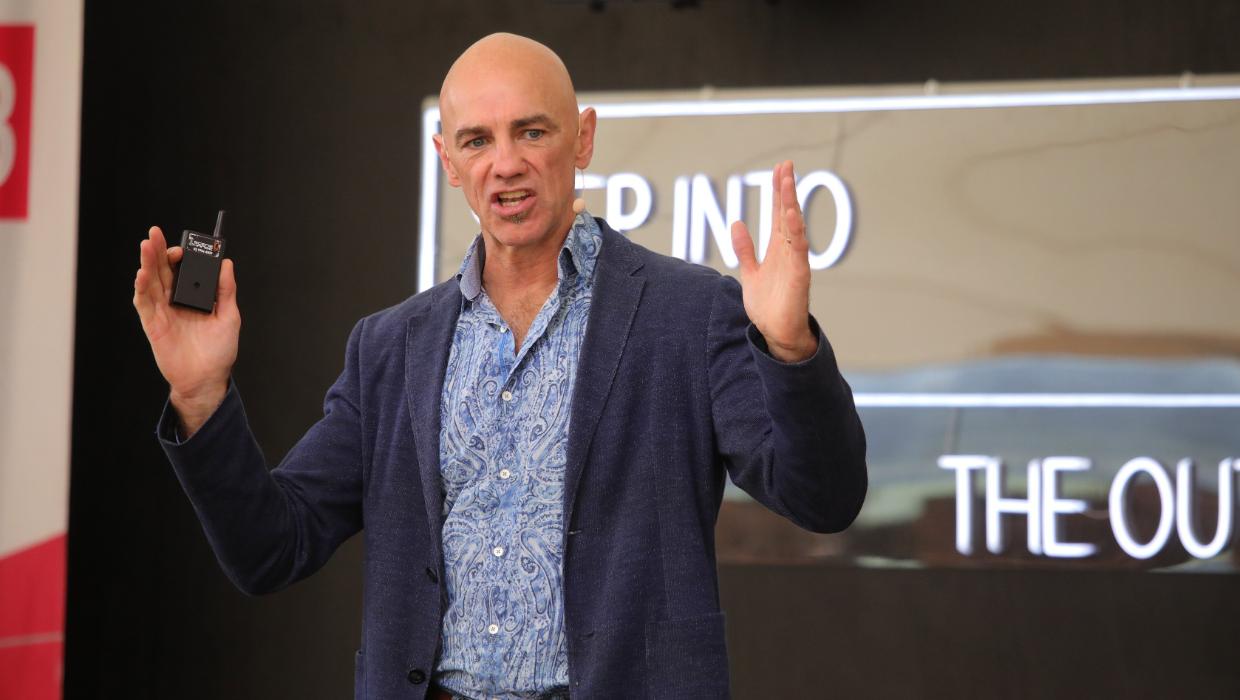Health
Psychotherapist Dr. Paul Taylor Advocates Resilience Over Comfort

Dr. Paul Taylor, an Australian author and psychotherapist, has sparked debate with his views on mental health, suggesting that the current emphasis on comfort and emotional safety may leave individuals ill-prepared to confront life’s challenges. Taylor, who grew up in Northern Ireland and served in the military, argues that true resilience is developed through discomfort rather than avoidance.
According to Taylor, the pervasive focus on mental health awareness, including trigger warnings and diagnoses, can unintentionally foster fragility among individuals, particularly children. He draws a parallel to the song “A Boy Named Sue” by Johnny Cash, where the father deliberately names his son Sue to instill toughness. “The best treatment for anxious people is exposure therapy, not avoidance,” Taylor asserts, emphasizing the importance of preparing for life’s inevitable hardships.
Taylor elaborates on his philosophy, stating, “Life is amazing, but it’s also going to be hard, and you will be guaranteed to get challenges from the universe.” He advocates for what he terms “hardiness training,” encouraging individuals to embrace challenges as opportunities for character development. He believes that rather than seeking to make life easier, people should work on becoming tougher and more resilient.
In discussing the impact of mental health discussions in schools, Taylor warns against overexposing children to negative emotions. “Research is showing that the more you talk about emotions, the more people start to reflect on their emotions and actually identify with negative emotions,” he explains. He suggests limiting conversations about mental health in educational settings to prevent children from becoming overly focused on anxiety and depression.
Conversely, Taylor acknowledges that while the mental health movement has successfully raised awareness, it carries potential drawbacks. He critiques contemporary society for being overly individualistic and suggests that this trend has roots in capitalism. With traditional religious structures declining, he argues that individuals must find their own meaning and values, a task that can be challenging without a communal framework.
Reflecting on his own journey, Taylor recounts how experiences in the Royal Navy and personal losses prompted him to consider his own mortality and the importance of resilience. His military background has shaped his current work with the Australian military, where he focuses on enhancing hardiness and cognitive fitness among service members.
The conversation around mental health and resilience has garnered attention from various experts. Shaun Robinson, Chief Executive of the Mental Health Foundation, supports initiatives that promote resilience and well-being. He emphasizes the significance of lifestyle habits, such as connecting with others and engaging with nature, in building mental health resilience.
Robinson notes, “Neuroscience is increasingly showing that diet and connecting to nature have strong positive effects on mental health.” He advocates for a balanced approach that combines support services with proactive measures to foster resilience in children and adults alike.
While Taylor’s views may challenge the prevailing narrative around mental health, they invite a critical examination of how society prepares individuals to cope with adversity. His book, *The Hardiness Effect*, priced at $34.95, further explores these themes and proposes a framework for developing resilience in a rapidly changing world.
-

 Sports2 months ago
Sports2 months agoNetball New Zealand Stands Down Dame Noeline Taurua for Series
-

 Entertainment2 months ago
Entertainment2 months agoTributes Pour In for Lachlan Rofe, Reality Star, Dead at 47
-

 Entertainment1 month ago
Entertainment1 month agoNew ‘Maverick’ Chaser Joins Beat the Chasers Season Finale
-

 Sports2 weeks ago
Sports2 weeks agoEli Katoa Rushed to Hospital After Sideline Incident During Match
-

 Sports2 months ago
Sports2 months agoSilver Ferns Legend Laura Langman Criticizes Team’s Attitude
-

 Politics1 month ago
Politics1 month agoNetball NZ Calls for Respect Amid Dame Taurua’s Standoff
-

 Sports2 weeks ago
Sports2 weeks agoJamie Melham Triumphs Over Husband Ben in Melbourne Cup Victory
-

 Entertainment3 months ago
Entertainment3 months agoKhloe Kardashian Embraces Innovative Stem Cell Therapy in Mexico
-

 World4 months ago
World4 months agoPolice Arrest Multiple Individuals During Funeral for Zain Taikato-Fox
-

 Sports3 months ago
Sports3 months agoGaël Monfils Set to Defend ASB Classic Title in January 2026
-

 Entertainment2 months ago
Entertainment2 months agoTyson Fury’s Daughter Venezuela Gets Engaged at Birthday Bash
-

 Sports2 months ago
Sports2 months agoHeather McMahan Steps Down as Ryder Cup Host After Controversy



















